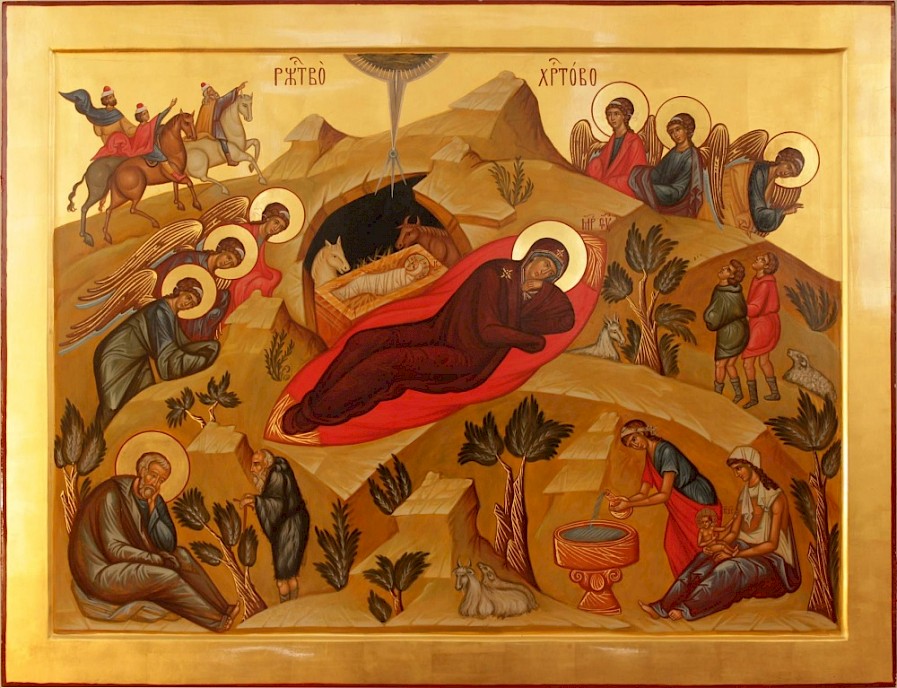
“For the Life was made manifest, and we have seen it, and bear witness, and show unto you that eternal life which was with the Father, and was manifested unto us” (1 John 1, 2).
This new life is our Lord Jesus Christ, Who is now born in Bethlehem, as He Himself said during the last days of His earthly life: “I am the way, and the truth, and the life” (John 14, 6).
What is this new life, brothers, and why do people long for it? Because before Christ, people were dissatisfied with their former life, and even now all those who separate themselves from Christ are dissatisfied; they are dissatisfied because earthly life does not correspond to their desires. They want to be healthy and full, but life burdens them with sicknesses and hunger; they want riches and high ranks, but poverty and dishonour goad them, and if they do not fall into these disasters, they still remain dissatisfied with what they have, and desire more good things.
06.01.2026Read more
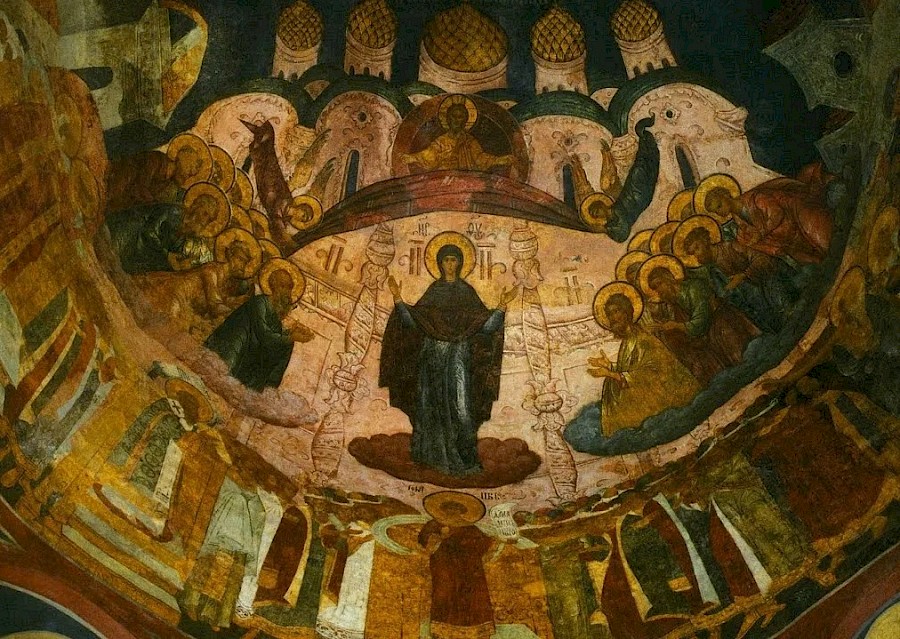
“Today the Virgin stands in the midst of the Church and with choirs of saints she invisibly prays to God for us.”
(From the kontakion on the Intercession.)
Could this really be true? Could She Herself, “Highest in the heavens and purer than the light of the Sun,” Whose every plea is fulfilled by Her Divine Son, participate in our church prayers?
Could She, the “inspired temple of the Heavenly King,” enter our meager, hand-built churches and pray here together with us, and as we sinners do?
Yes, indeed! We are persuaded of this by many events from the lives of saints and especially the remarkable event remembered on October 1 (14 new style), the day of the Intercession of the Most-Holy Mother of God.
This was a long time ago, a millennium ago. In the Blachernae Church in Constantinople, where a great relic was kept—the Veil of the Mother of God, a head-covering which extended over Her shoulders, and part of Her sash—all-night vigil was being performed. Attending the service was a great saint of the time, Blessed Andrew, Fool-for-Christ, together with his disciple, St Epiphanius. At four o’clock in the morning, they beheld a wondrous vision. The Grand Lady emerged from the Royal Doors, surrounded by a heavenly retinue. The Honorable Forerunner of the Lord John and Apostle John the Theologian supported her at either side as a multitude of saints in snow-white garments surrounded Her, singing hymns and holy songs.
When She approached, St Andrew, not believing his eyes, asked Epiphanius: “Do you see the Lady and Queen of the World?” “I do, my spiritual father,” he replied, “I see and I am terrified.” And as they watched, She knelt, prayed for a long time, tears streaming down Her Divine and Most-Pure visage. Completing Her prayer, She approached the altar table, and again prayed fervently for the people in the temple. Afterwards, She removed Her lightning-bright, great and awe-inspiring veil, and, holding it ceremoniously, spread it over all the people standing in the church.
14.10.2025Read more
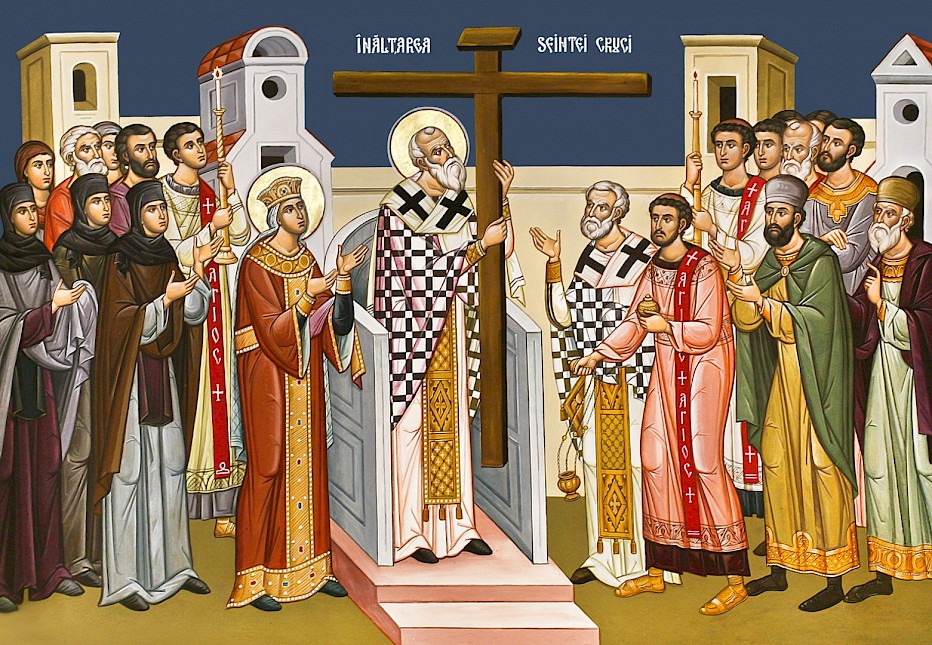
In the Prophet Ezekiel (9:6), it is said that when the Angel of the Lord was sent to punish and destroy the sinning people, it was told him not to strike those on whom the "mark" had been made. In the original text this mark is called "tau," the Hebrew letter corresponding to the letter "T," which is how in ancient times the cross was made, which then was an instrument of punishment.
So, even then, it was foretold the power of the Cross, which preserves those who venerate it. Likewise, by many other events in the Old Testament the power of the Cross was indicated. Moses, who held his arms raised in the form of a cross during the battle, gave victory to the Israelites over the Amalekites. He also, dividing the Red Sea by a blow of his rod and by a transverse blow uniting the waters again, saved Israel from Pharaoh, who drowned in the water, while Israel crossed over on the dry bottom (Exodus, ch. 14, 17).
Through the laying on of his hands in the form of a cross on his grandsons, Jacob gave a blessing to his descendents, foretelling at the same time their future until the coming of the "expectation of the nations" (Genesis, ch. 48).
27.09.2025Read more

The present Feast is for us the beginning of feasts. Serving as boundary to the law and to prototypes, at the same time it serves as a doorway to grace and truth. “For Christ is the end of the law” (Rom 10:4), Who, having freed us from the letter (of the law), raises us to spirit. Here is the end (to the law): in that the Lawgiver, having made everything, has changed the letter in spirit and gathers everything in Himself (Eph 1:10), enlivening the law with grace: grace has taken the law under its dominion, and the law has become subjected to grace, so that the properties of the law not suffer reciprocal commingling, but only so that by Divine power, the servile and subservient (in the law) are transformed into the light and free (in grace), so that we are not “in bondage to the elements of the world” (Gal 4:3) and not in a condition under the slavish yoke of the letter of the law. Here is the summit of Christ’s beneficence towards us! Here are the mysteries of revelation! Here is the theosis [divinization] assumed upon humankind, the fruition worked out by the God-Man.
21.09.2025Read more
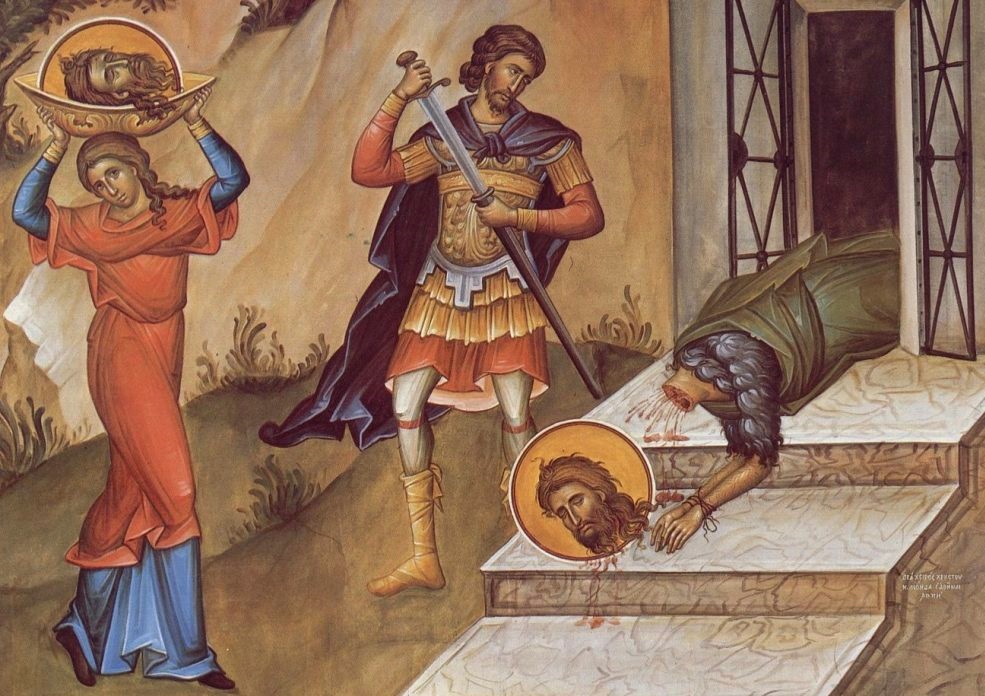
We now solemnly remember with awe and reverence the beheading of the honorable head of the holy, glorious, prophet, forerunner and baptist of the Lord, John. Why is the beheading of John so venerable, so important and dear to everyone?
Because of the truth, he suffered; because of the truth, his head was cut off; and the truth is dear to all, because in it is the salvation of all.
What would happen on earth if the truth was not observed between people, if the truth was not so kept, respected? Then no one could live on earth. The society of unrighteous and deceitful people cannot exist for a long time: they will be destroyed by themselves or they will destroy each other. Where righteousness is not observed, there is an end near of everything, and unrighteous gain is always dust. Where the truth is not stored, there soon everything perishes, and lawless life is death.
What would the earth be without the sun? Gloomy, cold, a dead desert. And without the truth it would be even worse on earth. Truth is more needed than the sun for people. And that is why the greatest blessing is done to the human race by the one who implants the truth on earth.
11.09.2025Read more

The memory of the just takes place with rejoicing, said Solomon, the wisest of men; for precious in God's sight is the death of His saints, according to the royal David. If, then, the memory of all the just is a subject of rejoicing, who will not offer praise to justice in its source, and holiness in its treasure-house? It is not mere praise; it is praising with the intention of gaining eternal glory. God's dwelling-place does not need our praise, that city of God, concerning which great things were spoken, as holy. David addresses it in these words: "Glorious things are said of thee, thou city of God." What sort of city shall we choose for the invisible and uncircumscribed God, who holds all things in His hand, if not that city which alone is above nature, giving shelter without circumscription to the supersubstantial Word of God? Glorious things have been spoken of that city by God himself. For what is more exalted than being made the recipient of God's counsel, which is from all eternity?
28.08.2025Read more
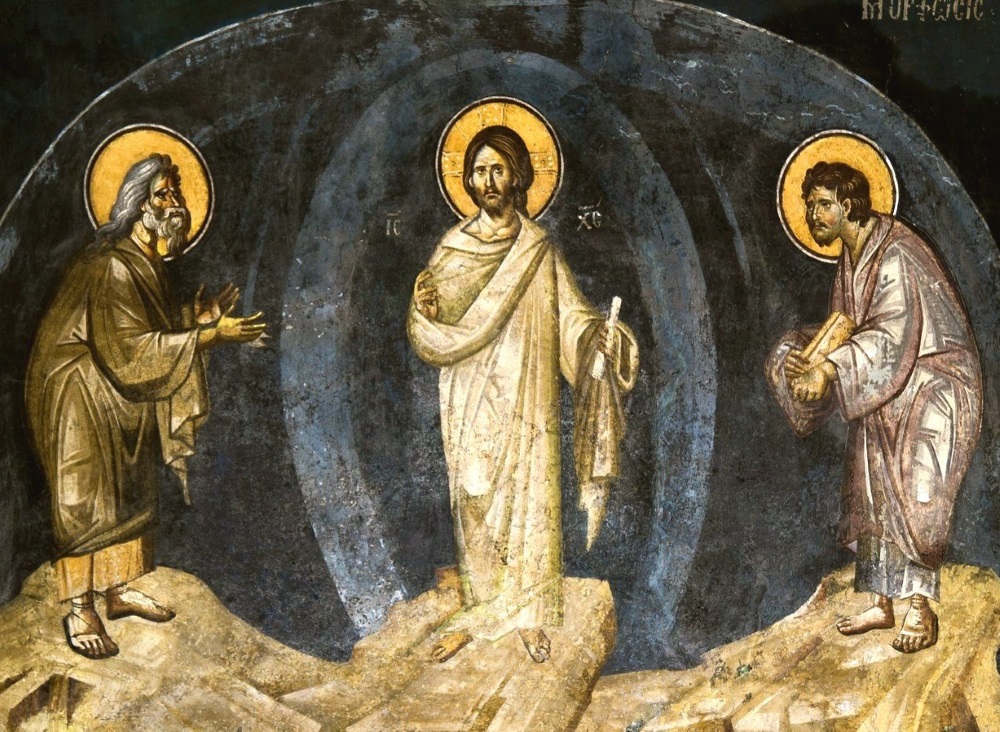
For an explanation of the present Feast and understanding of its truth, it is necessary for us to turn to the very start of today’s reading from the Gospel: “Now after six days Jesus took Peter, James and John his brother, and led them up onto a high mountain by themselves” (Mt 17:1).
First of all, we might start by asking when the Evangelist Matthew began his six-day count? What kind of day was it? What does the preceding statement indicate, where the Savior, in teaching His disciples, said to them: “For the Son of Man shall come with his angels in the glory of His Father,” and further: “Again I say to you, there are some standing here who shall not taste death, until they have seen the Son of Man coming in His Kingdom” (Mt 16:27-28)? That is to say, it is the Light of His own forthcoming Transfiguration which He terms the Glory of His Father and of His Kingdom.
19.08.2025Read more

The day of the Holy Apostles Peter and Paul is the culminating feasts of the Gospel. Although the last event in the life of Christ which is related in the Gospel as His Ascension into heaven (Mark 16:19; Luke 24:51), the preaching of the Apostles is closely bound up with the Gospel. The Gospel tells us of their being chosen, and the Gospel indicates beforehand the end of Apostolic activity.
Telling of the appearance of Christ on the sea of Tiberias and the restoration to apostleship of Peter, who by his triple confession corrected his triple denial, the Apostle and Evangelist John the Theologian speaks also of the prediction to the Apostle Peter concerning the end of his struggle. When thou shalt be old, thou shalt stretch forth thy hands, and another shall gird thee, and carry thee whether thou wouldest not. This spoke He, signifying by what death he should glorify God (John 21:18-19).
It was not pleasing to the Lord then, to reveal the face of each of the other Apostles, although, when sending them to preach, He predicted to them, the persecutions that awaited them (Matt. 10:17-36). Now, to the question of Peter about John, Christ replied: If I will that he tarry till I come, what is that to thee? Follow thou Me (John 21:22).
12.07.2025Read more

Introduction
Barely six months ago [1966] there reposed in the Lord a hierarch of the Church of Christ whose life so extraordinarily radiated the Christian virtues and the grace of the Holy Spirit as to make him a pillar of true Orthodoxy and an example of Christian life that is of universal significance. In Archbishop John there are united three kinds of highest Christian activity that are rarely found together: that of a bold and esteemed Prince of the Church; an ascetic in the tradition of the pillar saints, taking upon himself the severest self mortification; and a fool for Christ’s sake, instructing men by a ‘foolishness’ that was beyond the wisdom of this world.
The following account cannot begin to be called a complete life of Archbishop John; it is only a selection of the material that is already available, presented in the form of a preliminary sketch of the life of this holy man. It was compiled by the St Herman Brotherhood, which was organized with the blessing of Archbishop John (who wished to see Father Herman canonized after Father John of Krohnstadt) for the mission of the printed word. Now, in fulfillment of this mission, it is our duty to speak the truth about this man, who was, in our dark times when genuine Christianity has almost vanished, an embodiment of the life of Christ.
The account is based primarily upon personal acquaintance and upon the testimony of witnesses known to the compilers. Archbishop John throughout is referred to by the term Russians use to speak of and address bishops: Vladika. In English this is rendered ‘Master’, but the Russian word, when used by itself, implies a familiarity and endearment that are wanting in the nearest English equivalent. For those who knew him, Archbishop John will always be simply Vladika.
02.07.2025Read more

On this day, the first Sunday after Pentecost, we commemorate the feast of All Saints from all times and throughout all the world: from Asia, Libya, Europe, from the North and from the South.
Our godly Fathers have established the commemoration of this present feast after the Descent of the Holy Spirit in order to show that the coming of the most Holy Spirit worked enormous deeds through the Apostles, sanctifying and bestowing wisdom upon those who were like us, and setting these saints in the place of those angels who had fallen, leading them, through Jesus Christ, to God. Some, the martyrs, came through blood, while others were led through their virtuous way of life, but all were perfected through the Holy Spirit in an ineffable manner.
15.06.2025Read more










